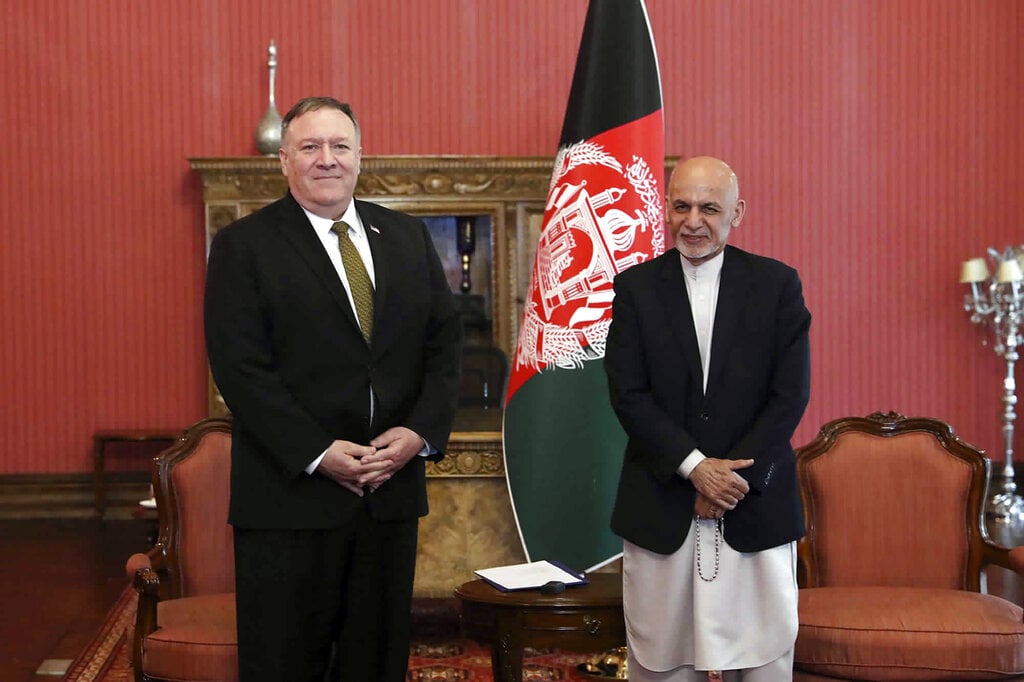Commentary
The Gospel according to Pompeo
If Pompeo's morality lectures aren't gaining traction at the Vatican, they are finding fertile ground in Italy. Di Maio’s M5S, encouraged by the PD and by our Prime Minister “Giuseppi” Conte, are now more Atlanticist than the old Christian Democrats.

The Pope has given a clear rebuke to the Gospel according to Pompeo—a resounding and timely one. Bergoglio would not receive the U.S. Secretary of State, officially because he does not grant an audience to politicians involved in electoral contests. In reality, he did not at all welcome the U.S. criticism of the agreements between China and the Holy See, signed two years ago after the diplomatic efforts of Secretary of State Parolin and his deputy, Cardinal Becciu—who is now at the center of a scandal regarding investments in London and tips given to relatives. The Vatican is under attack, on more fronts than just the investments of one particular cardinal.
A week ago, on the eve of the expiration of the China-Vatican agreement on the shared nomination of bishops, Pompeo warned the Pope from the pages of the conservative magazine First Things: “Two years on, it’s clear that the Sino-Vatican agreement has not shielded Catholics from the Party’s depredations, to say nothing of the Party’s horrific treatment of Christians, Tibetan Buddhists, Falun Gong devotees, and other religious believers. … Now more than ever, the Chinese people need the Vatican’s moral witness and authority in support of China’s religious believers.”
In short, Pompeo is schooling the Pope on morality. He, together with Trump, is the self-proclaimed messiah of a new Gospel. The agreement he concluded with the Taliban to make peace in Afghanistan, after 19 years of U.S.-caused war, must have given him a jolt of fundamentalist zeal—as if the militant fundamentalism of the American evangelists, the loyal Trump voters, as well as that of the Israeli parties and settlers allied to Netanyahu was not enough. There is certainly a sort of grand geopolitical alliance that has led the U.S. to mediate a peace deal between Israel and absolute monarchies such as the Emirates and Bahrain, but that makes its representatives intolerant towards the Pope.
This gentleman, of Abruzzi origins (like Madonna), must feel like a paladin of morality—after he began the year beside Trump, on January 3, boasting of having had the Iranian general Qassem Soleimani assassinated at Baghdad airport. The Pope, however, is a mischievous man in his eyes: after all, he opposed the bombings on Syria in 2015, during Obama’s time—as Wojtyla had opposed the attack on Iraq in 2003—while rebuking the arms dealers and the powers that are fomenting wars. The U.S.-caused wars, according a Brown University study, have turned 37 million people into refugees in 20 years: but this matters little for Pompeo.
Most damning in his eyes is the fact that, in much more recent times, the pontiff has remained silent, like the whole of Vatican diplomacy, on the “Abraham accords” between Tel Aviv, Abu Dhabi and Manama. How can that be? The United States of Trump are forging a new “Arab Nation” with Israeli support in the Middle East and the Holy See is saying nothing? While the news was covered by the Vatican media, this official silence is indeed extraordinary: in previous cases, both for the 1993 Oslo Accords and the 1978 Camp David Treaty, the Vatican had immediately expressed its approval and received the heads of state involved. There could be two reasons for the papal silence: one political, the other diplomatic. According to the first, the Pope did not express himself in order to avoid giving explicit support to Trump in the election campaign and to avoid giving support to Netanyahu’s leadership in Israel. In reality, we know from Biden that even if Trump goes away, the Abraham accords will remain.
The second reason, however, is probably the main one: the Palestinian Authority considers this a “betrayal” from the Arab countries that accepted it, so it has abandoned the presidency of the Arab League. A betrayal by the Emirates and Bahrain, but also by al-Sisi’s Egypt and Saudi Arabia. Considering that Palestine, the land of Bethlehem (and Jerusalem), is still the Vatican’s main interlocutor in the Middle East, one can understand the position of the Holy See. But perhaps the Pope has an even greater reproach against Washington: it considers Israel an occupying power and is still in favor of the “two peoples, two states” solution. Washington, and the great transatlantic-Arab-Israeli alliance in general, will not be pleased with Pope Francis. Moreover, he is insisting—as he did in his speech to the UN and in the forthcoming “Brothers All” encyclical—in his criticism of capitalism taken to the extreme. In Boris Johnson’s U.K., which has banned references to anti-capitalism from school curricula, the pontiff’s words might even be censored.
If the Gospel according to Pompeo isn’t getting any traction at the Vatican, it is finding fertile ground here in Italy. Di Maio’s M5S, encouraged by the PD and by our Prime Minister “Giuseppi” Conte, are now more Atlanticist than the old Christian Democrats. With Pompeo, they will feign independence on the issues of Huawei and 5G networks involving the Chinese, saying they would follow the European decisions. But on everything else, they will be good sports. At the suggestion of Washington, we will soon once again be friends of Erdogan, who is facing up against Putin’s Russia in Libya, Syria and Nagorno Karabakh. It is illiberal democracy that is reaping the benefits, as Tommaso Di Francesco explained yesterday in il manifesto. But who will break the news to the Italians that we are now close allies of the Sultan, orchestrator of bloody repression against the Kurds and the opposition in his country? Perhaps the Pope can do something about that.
Originally published at https://ilmanifesto.it/il-vangelo-secondo-pompeo/ on 2020-09-30
